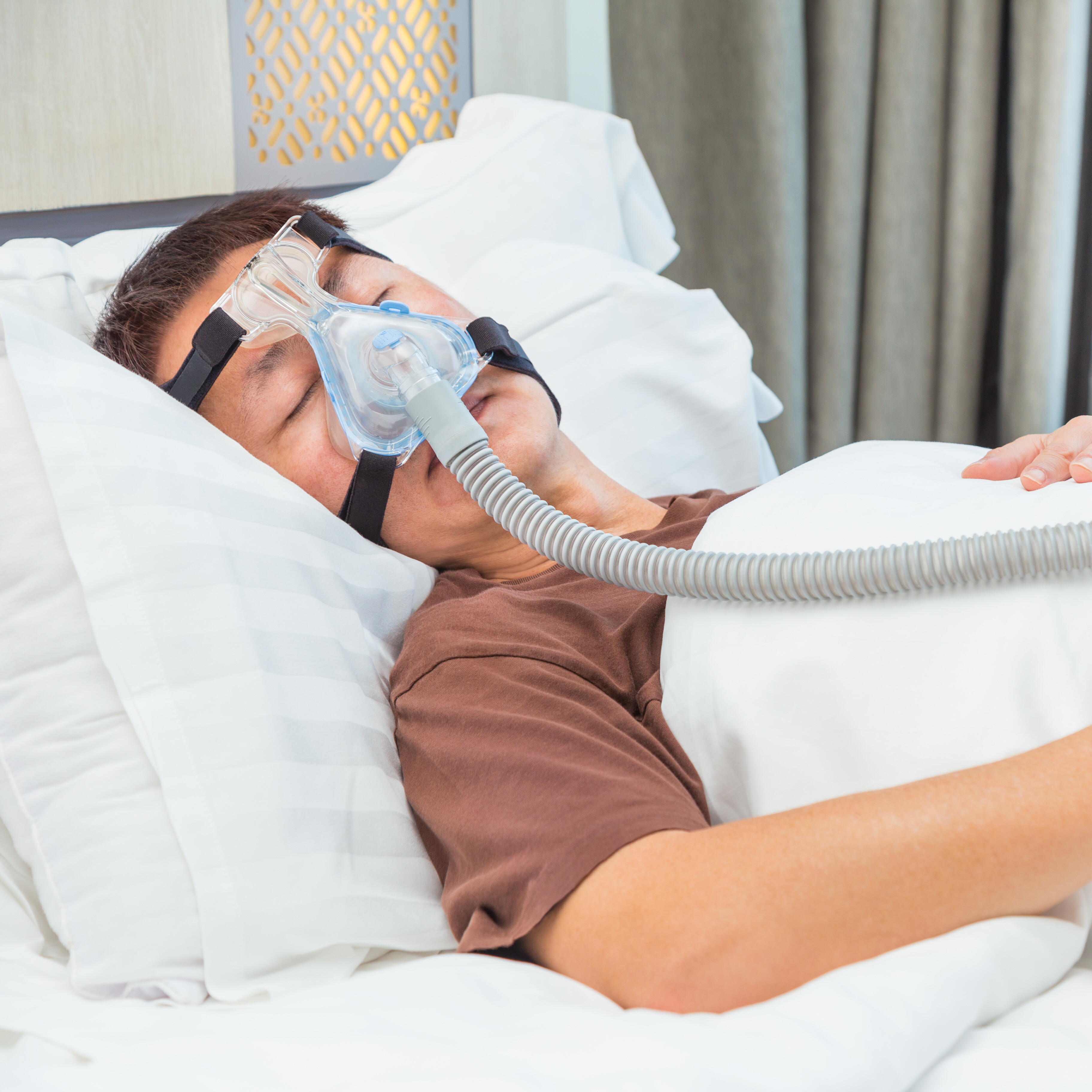
Article Summary
The FDA has approved Zepbound® (tirzepatide) for obstructive sleep apnea (OSA) in adults with obesity, making it the first medication for this condition. Clinical trials show it reduces sleep apnea events and promotes significant weight loss, emphasizing the potential link between metabolic health and sleep disorders while reinforcing the potential role of GLP-1 and GIP receptor agonists in chronic disease management.
Disclaimer: This content is for informational or educational purposes only and does not substitute professional medical advice or consultations with healthcare professionals.
FDA Approves Zepbound® for Sleep Apnea: A New Era in Treatment
Finally, a prescription sleep apnea therapy. In a groundbreaking move, the U.S. Food and Drug Administration (FDA) has approved Zepbound®, with the active ingredient tirzepatide, for the treatment of moderate to severe obstructive sleep apnea (OSA) in adults with obesity. Announced on December 20, 2024, this approval marks a significant milestone as it is the first medication specifically approved for this indication.
The decision follows promising results from the SURMOUNT-OSA clinical trial, which demonstrated that Zepbound® not only reduced sleep apnea events but also facilitated substantial weight loss among participants.1,2
Request More Information on Compounded GLP-1s
Already set up with an Empower account? Log in today to place your order.
The Mechanism Behind Zepbound®
Zepbound® operates as a dual agonist, targeting both glucagon-like peptide-1 (GLP-1) and glucose-dependent insulinotropic polypeptide (GIP) receptors. These mechanisms are crucial in regulating appetite and glucose metabolism. In the SURMOUNT-OSA trial, patients receiving Zepbound® experienced an average weight loss of 45 to 50 pounds over a year, compared to just 4 to 6 pounds in the placebo group. 1,2 This significant weight reduction is essential because some studies suggest that obesity is a primary risk factor for OSA, where excess body weight can lead to airway obstruction during sleep.3
The Broader Implications of Zepbound® Approval
The approval of Zepbound® for OSA highlights an emerging trend in medical treatment – the recognition of metabolic health as integral to managing various chronic conditions. Dual GLP-1 and GIP receptor agonists have already shown promise in treating obesity and type 2 diabetes, but their application in sleep disorders underscores their versatility. Similarly, research indicates that GLP-1 receptor agonists may also provide neuroprotective benefits and improve cardiovascular health, broadening their therapeutic potential beyond weight management.4,5
However, while Zepbound® offers a new avenue for treatment, it is essential to consider its role within a comprehensive approach to health. Integrating medication with lifestyle modifications—such as a balanced diet and regular exercise—remains critical for long-term success in managing obesity-related conditions.
Intersecting Pharmacy and Lifestyle
The FDA’s approval of Zepbound® for obstructive sleep apnea represents a pivotal advancement in treating this complex condition linked to obesity. As healthcare continues to evolve towards more personalized medicine approaches, the juxtaposition of pharmacological treatments with traditional lifestyle interventions will be crucial.
FAQs
- Is Zepbound® FDA approved for sleep apnea?
- Yes, sleep apnea is now an FDA-approved indication for Zepbound®.
- What is the newest treatment for sleep apnea?
- On December 20, 2024, the FDA announced Zepbound® as the first prescription drug to address sleep apnea for obese adult patients.
- Will tirzepatide help sleep apnea?
- Zepbound®, with the active ingredient tirzepatide, has been demonstrated to help reduce sleep apnea by inducing weight loss.
Looking to source GLP-1s for your patients?
Set up your Empower Pharmacy account today to get started.
Are you a patient looking to start your weight loss journey?
As a 503A compounding pharmacy, we fulfill prescriptions nationwide. Get started with Empower Pharmacy by speaking with your provider.
*Compounded medications are not approved by the FDA and are not tested by the FDA for safety and efficacy.
- Malhotra, A., Bednarik, J., Chakladar, S., Dunn, J. P., Weaver, T., Grunstein, R., Fietze, I., Redline, S., Azarbarzin, A., Sands, S. A., Schwab, R. J., & Bunck, M. C. (2024). Tirzepatide for the treatment of obstructive sleep apnea: Rationale, design, and sample baseline characteristics of the SURMOUNT -OSA phase 3 trial. Contemporary Clinical Trials, 141, 107516. https://doi.org/10.1016/j.cct.2024.107516
- Office of the Commissioner. (2024, December 20). FDA approves first medication for obstructive sleep apnea. U.S. Food And Drug Administration. https://www.fda.gov/news-events/press-announcements/fda-approves-first-medication-obstructive-sleep-apnea
- Cowan, D. C., & Livingston, E. (2012). Obstructive Sleep Apnoea Syndrome and Weight Loss: review. Sleep Disorders, 2012, 1–11. https://doi.org/10.1155/2012/163296
- Zheng, Z., Zong, Y., Ma, Y., Tian, Y., Pang, Y., Zhang, C., & Gao, J. (2024). Glucagon-like peptide-1 receptor: mechanisms and advances in therapy. Signal Transduction and Targeted Therapy, 9(1), 1–29. https://doi.org/10.1038/s41392-024-01931-z
- Zhao, X., Wang, M., Wen, Z., Lu, Z., Cui, L., Fu, C., Xue, H., Liu, Y., & Zhang, Y. (2021). GLP-1 receptor agonists: Beyond their pancreatic effects. Frontiers in Endocrinology, 12. https://doi.org/10.3389/fendo.2021.721135



